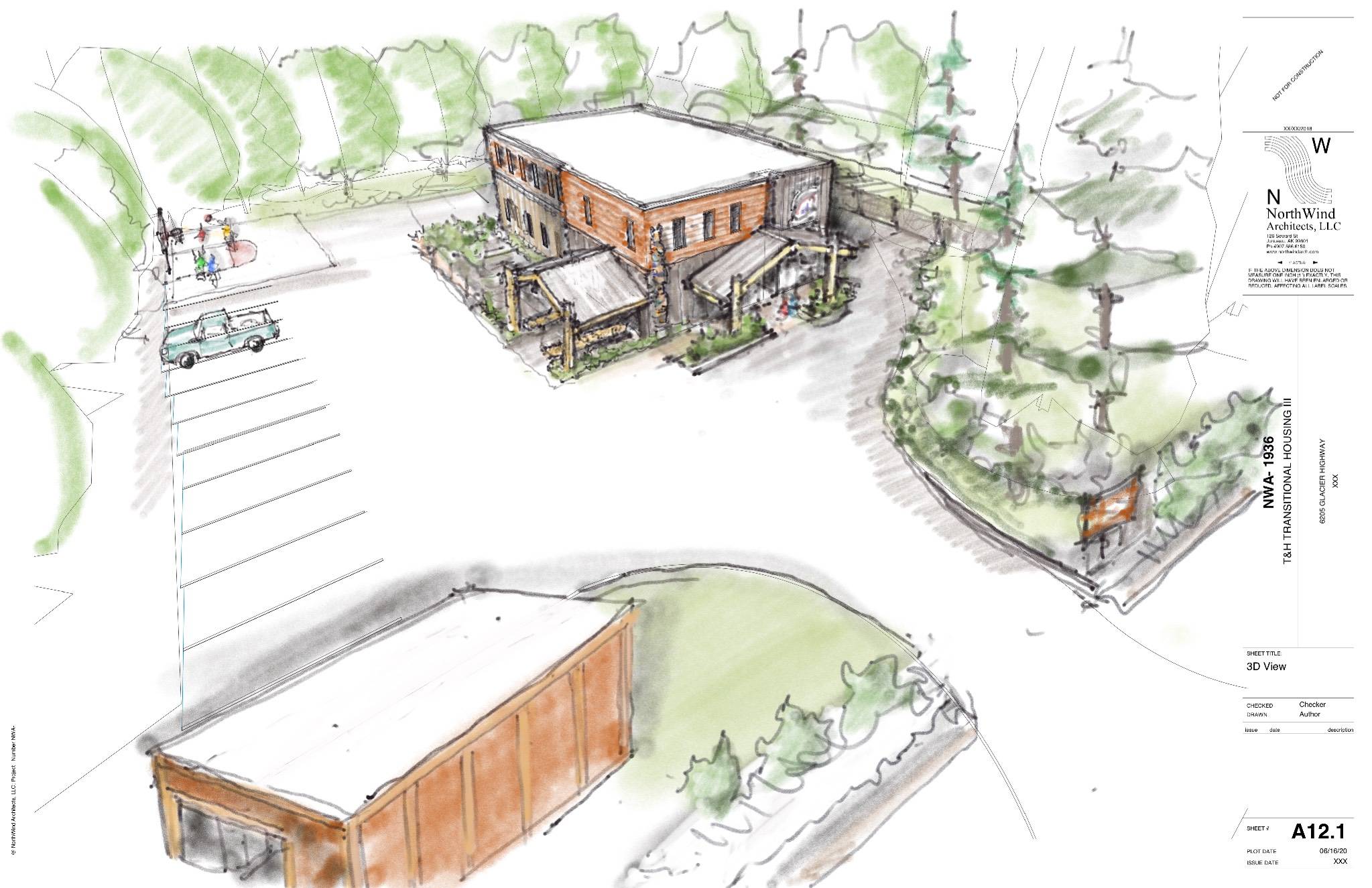The Central Council of Tlingit and Haida Indian Tribes of Alaska is working to finalize its plans for two transitional housing centers in the Lemon Creek area.
“The fact is that those that have sober-supportive housing are going to do better,” said Talia Eames, Tlingit and Haida’s reentry and recovery manager, in a phone interview. “When they’re doing better, they’re not reoffending. And when they don’t reoffend, there aren’t new victims.”
The two projects will host residents who recently exited the Department of Corrections. One is planned for the corner of Alaway and Glacier avenues. The other is planned for Allen Court.
“We are really only working within the tight timeline CBJ has given us,” Eames said. “One of the big uses in a lot of places like this is keeping people out of congregate shelter.”
The next step is for Tlingit and Haida to get the nod from the City and Borough of Juneau for the transitional housing. The tight schedule is owing to the need to use all CARES Act funding before the end of the calendar year, Eames said.
“We have our conditional use permit meeting with the planning commission on Aug. 11,” Eames said. “Construction will begin after the conditional use permit is granted.”
Tlingit and Haida plans to two constructs to rapidly and effectively use the CARES Act funding that’s supporting the project. If the project gets greenlit, Tlingit and Haida’s in-house contractor, Southeast General Contractors, will build the Allen Court location, while Alaska Commercial Contractors Inc. will build the Alaway Avenue location, Eames said.
[Details on mandate change scarce, few changes for now]
“Providing supportive housing and resources is actually a move for public safety,” Eames said in response to public concerns about siting the Alaway Avenue location in a residential neighborhood. “It’s the only way to impact recidivism.”
Alaska’s recidivism rate has dropped for the first time in 20 years, Eames said, hovering at about 60%. This is owed in many cases to programs like transitional housing programs, which help recently released offenders start off their reentry to society smoothly and with the kind of support that will be offered with these programs, Eames said.
The capacity of the facilities is 16 at the Alaway Avenue location and 12 at the Allen Court facility. The operational doctrine for both facilities is derived from longtime partners and tailored for additional support for the residents.
“We’ve worked with Haven House for the last 5 years and we’re adapting their policies and procedures for the home,” Eames said. “We’re expanding the support.”
There had been concerns raised on social media about the proposed facilities’ proximity to residences, Eames said, though efforts had been made throughout the process to communicate with those who had raised concerns with limited success.
Tlingit and Haida is aware of concern from neighbors, Eames said, and set up a dedicated page for the project to outline the process and answer some commonly asked questions.
Eames said that the project planners with her office were happy to meet virtually with neighborhood groups or associations to allay further concerns as they move forward on the permitting process.
Additionally, Eames highlighted some of the conditions that transitional housing residents will have to meet that may assuage some unease with the quick-moving process.
Tlingit and Haida, Eames said, will work with personnel within the Department of Corrections, ideally individuals like probation officers, for recommendations for good candidates for the programs.
Candidates will have to apply to live at either facility. There will be multiple requirements for participation in the program, including a minimum stay of six months, embracing a sober-living lifestyle and not having any sex offenses for consideration for the Alaway Avenue facility, among others Eames said.
• Contact reporter Michael S. Lockett at 757-621-1197 or lockett@juneauempire.com.

